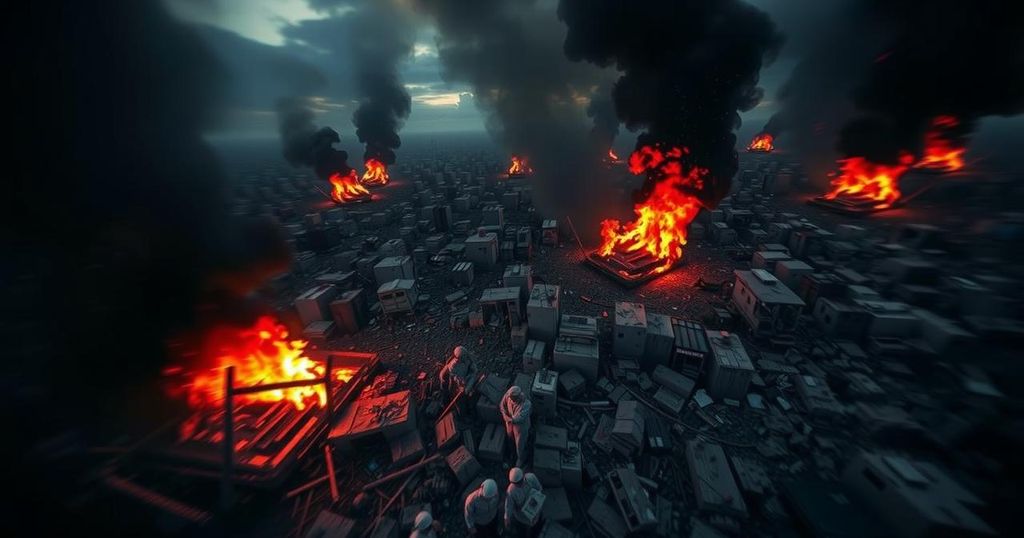Yahya Sinwar’s assassination may intensify Israel’s military stance, emboldening Netanyahu’s government while complicating negotiations for peace. The removal of powerful leaders within Hamas suggests a shift in regional power dynamics, though the internal complexities of Israeli politics continue to challenge the quest for stability and resolution. The upcoming U.S. elections further complicate the timeline for potential negotiations or ceasefires, leaving the prospects for a two-state solution uncertain.
The assassination of Yahya Sinwar, the leader of Hamas’s political bureau, marks a pivotal moment in the ongoing Gaza conflict. This event is likely to embolden Israeli leadership, particularly Prime Minister Benjamin Netanyahu, intensifying his military strategy and undermining opportunities for negotiations regarding hostages and ceasefires. With prominent leaders like Sinwar removed, a shift in the power dynamics within Hamas and Hezbollah is expected; however, it raises concerns about the future of stability in the region. Netanyahu may leverage this assassination to strengthen his domestic support and pursue broader regional ambitions, such as dismantling Hezbollah’s influence and addressing the Iranian threat. The elimination of Sinwar aligns with precedents set by the targeting of other significant figures, promoting a narrative of Israeli military triumph. Nevertheless, the pressing timeline of upcoming presidential elections in the United States adds urgency to Netanyahu’s plans, suggesting that any substantial moves towards peace negotiations or a ceasefire will remain unlikely. The internal complexities of Israeli politics reflect a broader trend of rising extremism. Extremist factions have historically held significant sway in Israeli governance, increasingly influencing decision-making processes. Netanyahu’s current coalition comprises traditional right-wing parties and newer, more moderate factions, all inclined towards hardline stances against perceived threats. The impact of decades of conflict has shaped the Israeli political landscape, creating a paradox where Netanyahu’s leadership continues despite a turbulent socio-political environment. The reliance on nationalist rhetoric and military action suggests a strategic approach designed to galvanize public support during geopolitical crises. In conclusion, while the assassination of Sinwar represents a potential turning point for Israeli tactics in the Gaza conflict, it simultaneously poses challenges for the broader quest for peace. The vacuum left by Sinwar’s death may present both opportunities and obstacles in pursuing a two-state solution, necessitating a reevaluation of priorities amid a climate of ongoing conflict and extremism.
The ongoing conflict in Gaza has been deeply rooted in historical tensions between Israel and Hamas. Yahya Sinwar, as a leading figure of Hamas, played a significant role in its military and political strategies. His assassination represents a broader shift in the power dynamics within militant organizations in the region. Israeli Prime Minister Benjamin Netanyahu’s military strategies are influenced by internal politics and the external threat perceptions related to Hamas and Hezbollah. The context of this conflict emphasizes the fragility of ceasefires and the complexities of negotiating peace amidst escalating violence.
The assassination of Yahya Sinwar has significant implications for both Israeli military strategy and the broader geopolitical landscape in the Middle East. While it may offer Netanyahu a temporary advantage, the lack of viable leadership within Hamas complicates meaningful negotiations for peace. This incident underscores the urgency for Israel to reassess its strategies amid rising extremism and shifting political alliances, as the window for pursuing a two-state solution may be narrowing.
Original Source: www.dailynewsegypt.com






